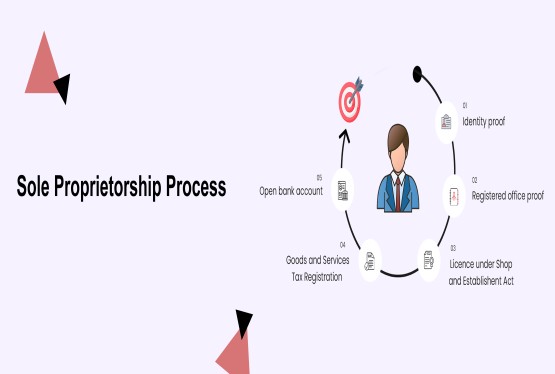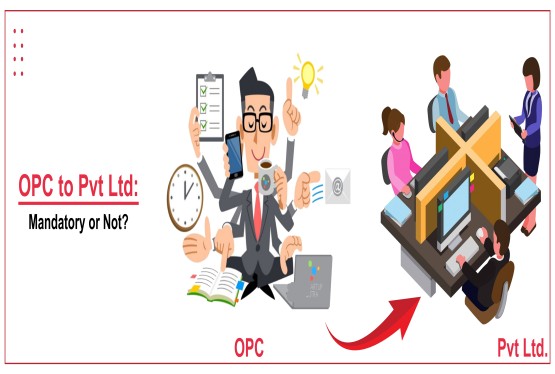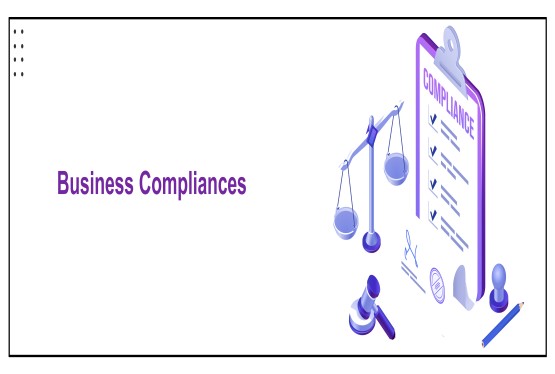The formation of a company is a very lengthy process indeed. To form a company the very first stage is that of ‘Promotion’. Promotion refers to the entire process by which a company is brought into existence. It starts with the conceptualization of the birth of a company and determination of the purpose for which it is to be formed.
Promoters
The persons who conceive the idea of forming a company and invest the initial funds are known as the promoters of the company.
Section 2 (69) of the Companies Act, 2013 defines the term ‘promoter’ as under:- “Promoter” means a person—
(a) who has been named as such in a prospectus or is identified by the company in the annual return referred to in section 92; or
(b) who has control over the affairs of the company, directly or indirectly whether as a shareholder, director or otherwise; or
(c) in accordance with whose advice, directions or instructions the Board of Directors of the company is accustomed to act.
Provided that sub-clause (c) shall not apply to a person who is acting merely in a professional capacity.
By virtue of above definition, persons in accordance with whose advice, directions or instructions the Board of Directors of the company is accustomed to act are also treated as promoters. However, if a person is merely acting in a professional capacity i.e. giving only professional advice to the Board of directors, he shall not be treated as a promoter.
In the words of Bowen, L.J.12, “The term promoter is a term not of Law but of business, usefully summing up in a single word a number of business operations familiar to the commercial world by which a company is generally brought into existence.” The promoters enter into preliminary contracts with vendors and make arrangements for the preparation, advertisement and the circulation of prospectus and placement of capital. However, a person who merely acts in his professional capacity on behalf of the promoter (e.g. lawyer, C.A., etc.) documents or prepares the figures on behalf of the promoter and who is paid by the promoter is not a promoter.
A promoter may be an individual, a firm, an association of persons or even a company. As far as the legal position of a promoter is concerned, a promoter is neither a trustee nor an agent of the company which he promotes because there is no trust or principal in existence at the time of his efforts. But certain fiduciary duties, like an agent, have been imposed on him under the companies Act. As such he is said to be in a fiduciary position (a position full of Trust and confidence) towards the company.
Legal Position of a Promoter
While the accurate description of a promoter may be difficult, his legal position is quite clear. A promoter is neither an agent of, nor a trustee for, the company because it is not in existence. But he occupies a fiduciary position in relation to the company and therefore requires to make full disclosure of the relevant facts, including any profit made by him as held by Lord Cairns in Erlanger v. New Sombrero Phosphate Co. (39 LT 269).
So, these are the persons who took the pains to form and incorporate the desired company. In order to form a company one should usually take five steps, namely:
-
Preparation of Memorandum of Association;
-
Preparation of Articles of Association;
-
Preliminary Contracts, if any;
-
Issue of a prospectus or delivery to the Registrar of a Statement in lieu of prospectus
Mode of forming Incorporated Company:
Section 3(1) states that a company may be formed for any lawful purpose by—
(a) seven or more persons, where the company to be formed is to be a public company;
(b) two or more persons, where the company to be formed is to be a private company; or
(c) one person, where the company to be formed is to be One Person Company that is to say, a private company by subscribing their names or his name to a memorandum and complying with the requirements of this Act in respect of registration.
Requirements to be gone through before incorporation:
-
Before the incorporation of the company the parties subscribing to the Memorandum of Association must file with the Registrar of companies-
-
The Memorandum of Association;
-
The Articles of Association (except where table A is adopted as the Articles of the company)
-
The agreement (if any) which the company proposes to enter into with an individual, firm or body corporate, to be appointed its secretaries and treasurers;
-
(except in case of a private company) a list of persons who have consented to be the directors of the company together with the consent in writing of each of such persons to act as such director and pay for his qualification shares.
-
A declaration under section 7(1)((b) by an advocate of the Supreme Court or of a High Court, an attorney or a pleader entitled to appear before a High Court, or a chartered accountant or by any director, manager, or secretary that all the requirements of the Act have been complied with.
-
On the documents mentioned above being filed with the Registrar, the Registrar issues a certificate known as the ‘Certificate of Incorporation’. This certificate is made conclusive proof of the fact that all the requirements regarding registration have been complied with. The company is, however, still not entitled to commence its business. Before it can do so, it has, if a public company, to secure a ‘certificate of commencement of business’ from the Registrar which will be granted by him only after some other legal formalities have been completed.
Pre-incorporation Contracts
The following are the pre-incorporation contracts:
Company cannot be sued on Pre-incorporation Contracts
Sometimes contracts are made on behalf of a company even before it is duly incorporated. But no contract can bind a company before it becomes capable of contracting by incorporation. Two consenting parties are necessary to a contract, whereas the company, before incorporation, is a non-entity. A company has no status prior to incorporation. It can have no income before incorporation for tax purposes. Shares cannot be acquired in the name of a company before its incorporation. A transfer form is liable to be rejected where the name of a proposed company is entered in the column of transferee. In English and
Colonial Produce Co.13, a solicitor, on the instructions of certain gentlemen, prepared the necessary documents and obtained the registration of a company. He paid the registration fee and incurred the incidental expenses of registration. But the company was held not bound to pay for those services and expenses. The company could not be sued in law for those expenses, in as much as it was not in existence at the time when the expenses were incurred and ratification was impossible. It is not desirable to saddle the corporation with burdens imposed upon it in advance by overly optimistic promoters.
Company cannot Sue on Pre-incorporation Contract
A company is not entitled to sue on a pre-incorporation contract. A company cannot by adoption or ratification obtain the benefit of a contract purporting to have been made on its behalf before the company came into existence. This was held in Natal Land & Colonisation Co. vs. Pauline Colliery Syndicate. N. Co. entered into an agreement with one C, who acted on behalf of a proposed syndicate. Under the agreement N. Co. was to give the syndicate a lease of coal mining rights. The syndicate was then registered and struck a seam of coal and claimed a lease which N. Co. refused. An action by the syndicate for specific performance of the agreement or in the alternative for damages was held not maintainable as the syndicate was not in existence when the contract was signed.
Ratification of Pre-incorporation Contract
So far as the company is concerned, it is neither bound by, nor can have the benefit of, a pre-incorporation contract. But this is subject to the provisions of the Specific Relief Act, 1963. Section-15 of the Act provides that where the promoters of a company have made a contract before its incorporation for the purposes of the company, and if the contract is warranted by the terms of incorporation, the company may adopt and enforce it. Warranted by the terms of incorporation means within the scope of the company’s objects as stated in the memorandum. The contract should be for the purposes of the company. A person, who intended to promote a company, acquired a leasehold interest for it. He held it for sometime for a partnership firm, converted the firm into a company which adopted the lease. The lessor was held bound to the company under the lease.
In Jai Narain Parasrampuria vs. Pushpa Devi Saraf, the Supreme Court held that the company has to accept the transaction but it is not necessary that the transaction should be mentioned in the company’s articles. The very fact that the company was seeking a declaration of its ownership of the property which the directors had purchased for it before incorporation was sufficient to signify acceptance of the transaction.
Section-19 of the same Act provides that the other party can also enforce the contract if the company has adopted it after incorporation and the contract is within the terms of incorporation.
Personal Right and Liability of Contracting Agent
The contracts which do not fall within the purview of the above provisions, the question arises whether they can be enforced by or against the agent who acted on behalf of the projected corporation? The answer will depend upon the construction of the contract. If the contract is made on behalf of a company not yet in existence, the agent might incur personal liability. For, where a contract is made on behalf of a principal known to both the parties to be non-existent the contract is deemed to have been entered into personally by the actual maker. The idea Is to protect the new company from the burden of promotrs’ promises, for they are proverbially profuse in their promises, and if the corporation were to be bound by them it would be subject to many unknown, unjust and heavy obligations.
Conclusion
The formation and incorporation of a company is a detailed and structured process beginning with the promotion stage, where promoters play a important role in conceptualizing and bringing the company into existence. Promoters, though not legal agents or trustees of the company prior to its incorporation, hold a fiduciary position and must act with full disclosure and good faith. The incorporation process involves preparing key documents like the Memorandum and Articles of Association, registering the company, and obtaining the Certificate of Incorporation, after which the company can commence business upon fulfilling additional requirements.
Pre-incorporation contracts present unique challenges, as a company cannot be bound by or benefit from contracts made before it legally exists. Such contracts cannot be enforced against or by the company unless adopted after incorporation under specific legal provisions. Promoters or agents who enter into contracts on behalf of a non-existent company may be personally liable unless the company subsequently ratifies the contract within the scope of its objects.
Thus, the law carefully balances protecting the company from undue burdens before it formally exists while allowing necessary preliminary arrangements to be legitimized post-incorporation, safeguarding the interests of all parties involved.
Frequently asked questions
Q1. What is the meaning of company formation and incorporation?
Ans. Company formation refers to the entire process of bringing a company into existence, starting from the initial idea or promotion stage to registration. Incorporation is the legal process by which the company becomes a separate legal entity after meeting all statutory requirements and obtaining a Certificate of Incorporation.
Q2. Who are promoters, and what role do they play in company formation?
Ans. Promoters are the persons who conceive the idea of forming a company and take initial steps to bring it into existence. They invest initial funds, enter into preliminary contracts, and arrange for the preparation of key documents like the Memorandum and Articles of Association.
Q3. What are the key documents required for incorporating a company?
Ans. The key documents include:
-
Memorandum of Association (MOA)
-
Articles of Association (AOA)
-
Consent of directors (except in private companies)
-
Declaration of compliance with legal requirements (by an advocate, chartered accountant, director, etc.)
4. How many persons are required to form a private and a public company?
Ans. A public company requires at least seven persons.
-
A private company requires at least two persons.
-
A One Person Company (OPC) can be formed by a single person.
5. What is the difference between Memorandum of Association and Articles of Association?
Ans. The Memorandum of Association defines the company’s constitution and objectives.
-
The Articles of Association contain the rules and regulations for the company’s internal management.
Q6. What is the process for registering a company with the Registrar of Companies?
Ans. The process involves filing the MOA, AOA, director consents, and compliance declarations with the Registrar. Upon verification, the Registrar issues the Certificate of Incorporation, which legally recognizes the company as a separate entity.
Q7. What is a Certificate of Incorporation, and why is it important?
Ans. The Certificate of Incorporation is a legal document issued by the Registrar confirming that the company has been duly registered and all legal requirements have been fulfilled. It serves as conclusive proof of the company’s existence.
Q8. Can a company enter into contracts before it is incorporated?
Ans. No, a company cannot enter into binding contracts before incorporation because it is not a legal entity yet. Contracts made before incorporation (pre-incorporation contracts) cannot bind the company unless adopted after incorporation.
Q9. What is the legal position and liability of promoters during company formation?
Ans. Promoters are not agents or trustees of the company before incorporation but hold a fiduciary position. They must disclose all material facts and can be personally liable for contracts made on behalf of the company before incorporation unless the company adopts those contracts later.
Q10. How can pre-incorporation contracts be ratified after the company is formed?
Ans. Under Section 15 of the Specific Relief Act, 1963, if a pre-incorporation contract is for the company’s benefit and within its objectives, the company may adopt and enforce it after incorporation. Ratification binds the company and allows it to sue or be sued on the contract.












_crop10_thumb.jpg)





_crop10_thumb.jpg)




























-Form_crop10_thumb.jpg)

_crop10_thumb.jpg)























_learn_crop10_thumb.jpeg)
































_crop10_thumb.jpg)

_crop10_thumb.jpg)





















_crop10_thumb.jpg)















_for_Foreign_Directors_learn_crop10_thumb.jpeg)




_Act,_2015_learn_crop10_thumb.jpg)































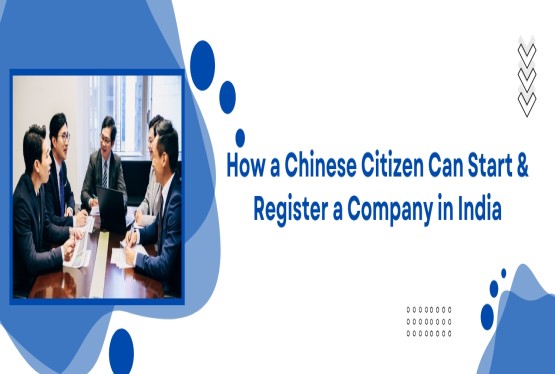
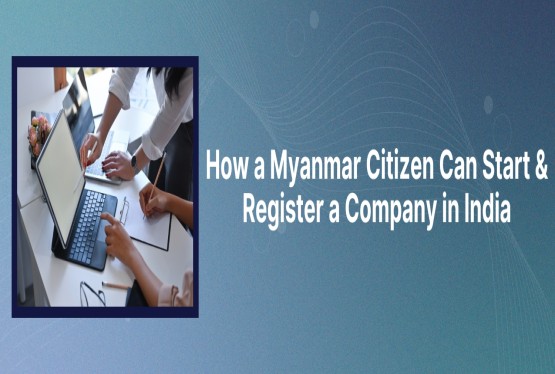

_learn_crop10_thumb.jpg)























